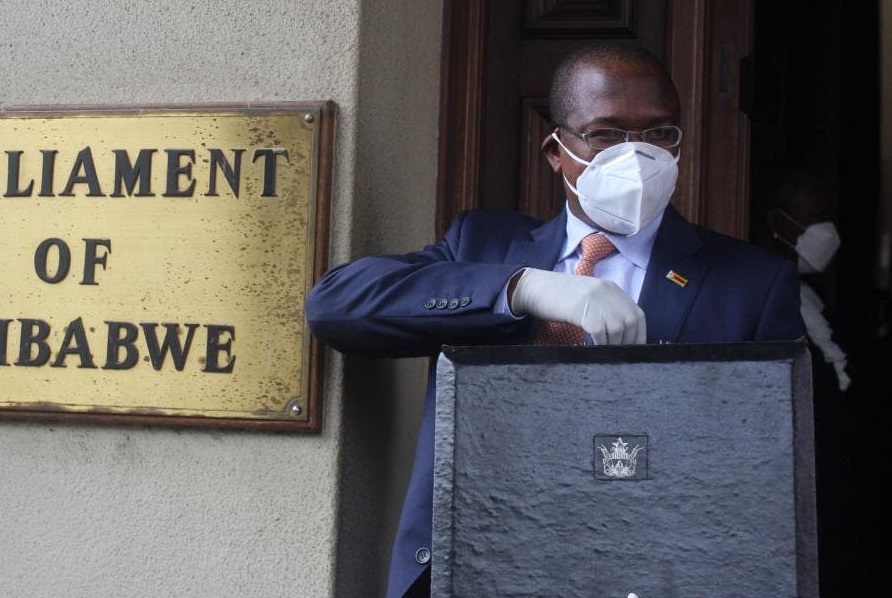By Christopher Makaza
Tax reforms proposed by Finance and Economic Development Minister Mthuli Ncube during the 2021 national budget presentation last week are aimed at ensuring that at least the country rely more on domestically generated resources, says Prosper Chitambara a Senior Researcher at LEDRIZ.
Chitambara said this during a Zimpapers TV Network (ZTN)'s Economic Panorama 2021 budget review hosted by Andy Hodges where he was among four other panelists.
Chitambara applauded a number of incentives announced by Minister Ncube which he said will enhance local capacity across the various sub sectors of the economy.
"During his 2021 budget presentation the Minister mainstreamed issues of employment, poverty reduction and also came up with clear employment creation targets and we have also seen a clear thrust in terms of financing. I think we are going more and more towards domestic resource mobilisation and I think even if we look at tax reforms that the Minister is proposing they are aimed at ensuring that at least we rely more on domestically generated resources.
"The Minister announced a number of incentives to try and enhance local capacity across the various sub-sectors of the economy which is also critical for enhancing employment creation and he has also come up with cannabis levy which is going to assist in generating revenue," said Chitambara.
Regarding infrastructure spending, Chitambara said there has been a slight improvement on budget allocation for next year, however suggesting that the country must involve more private sector financing as there is still a huge infrastructure financing gap.
ZIMCOD Executive Director Janet Zhou applauded the commitment shown by the Finance Minister in debt repayment.
"Prioritisation of debt repayment was a huge commitment in our budget and it is in line with our re-engagement process. We applaud the commitment to discipline which is very key we are going to bring down our debt levels which are currently unsustainable," she said.
Confederation of Zimbabwe Industry (CZI) Chief Economist Tafadzwa Bandama appreciated the Buy Zimbabwe initiative announced in the budget especially the issue that Government vehicles should be procured locally to give some lease of life to local producers.
"As CZI, we however feel that there should be a legislation put in place to ensure that the local content policy is supported through local procurement," she said.
Economist Gift Mugano noted that the issue of Devolution as highlighted in the budget was very critical in creating local development in provinces.
"The 19 billion dollars allocated on Devolution is a seed capital to give the provincial offices administration funds. The ball will be in the hands of those Provincial offices to develop their strategic plans for Devolution," he said.
Mugano said knowledge around Devolution should however be well communicated to the Ministers and other responsible authorities.
"If you look at the Kenyan model, they are doing pretty well. Each Governor with the State must have economic scoping or understanding. They then begin to have an idea to sell their Provincial GDPs. So in 2021 we must see Provincial Ministers with clear strategic plans which are borrowed from the budget and the National Development Strategy 1 (NDS1)," he said.
The 2021 $421.6 billion national budget presented by Minister Ncube was relevant to the workers as it had a considerable tax relief and the bonuses will also have a bigger portion tax free.
The budget which was themed "Building Resilience and Sustainable Economic Recovery” is expected to create more jobs and it proposed a bigger allocation to critical social miniseries like education and health which was allocated $55.2 billion and $54.7 billion respectively.
The Minister also reviewed upwards the pay-as-you-earn tax free threshold from $5000 to $10000 and increased the transfer tax free threshold from $300 to $500 as well as the bonus tax free threshold from $5000 to $25 000 effective from the beginning of this month.
Youth Employment Tax Credit was also reviewed from $500 to $1500 with a view to encourage companies to consider hiring more youths.
The 2021 national budget envisages the economy to rebound by 7.4 percent in 2021 from consecutive two year down turn. This will ensure strong economic recovery, building on the milestones from the Transitional Stabilisation Programme and targeting additional support measures to cushion vulnerable households. The national budget pushes the country forward towards achieving vision 2030.




